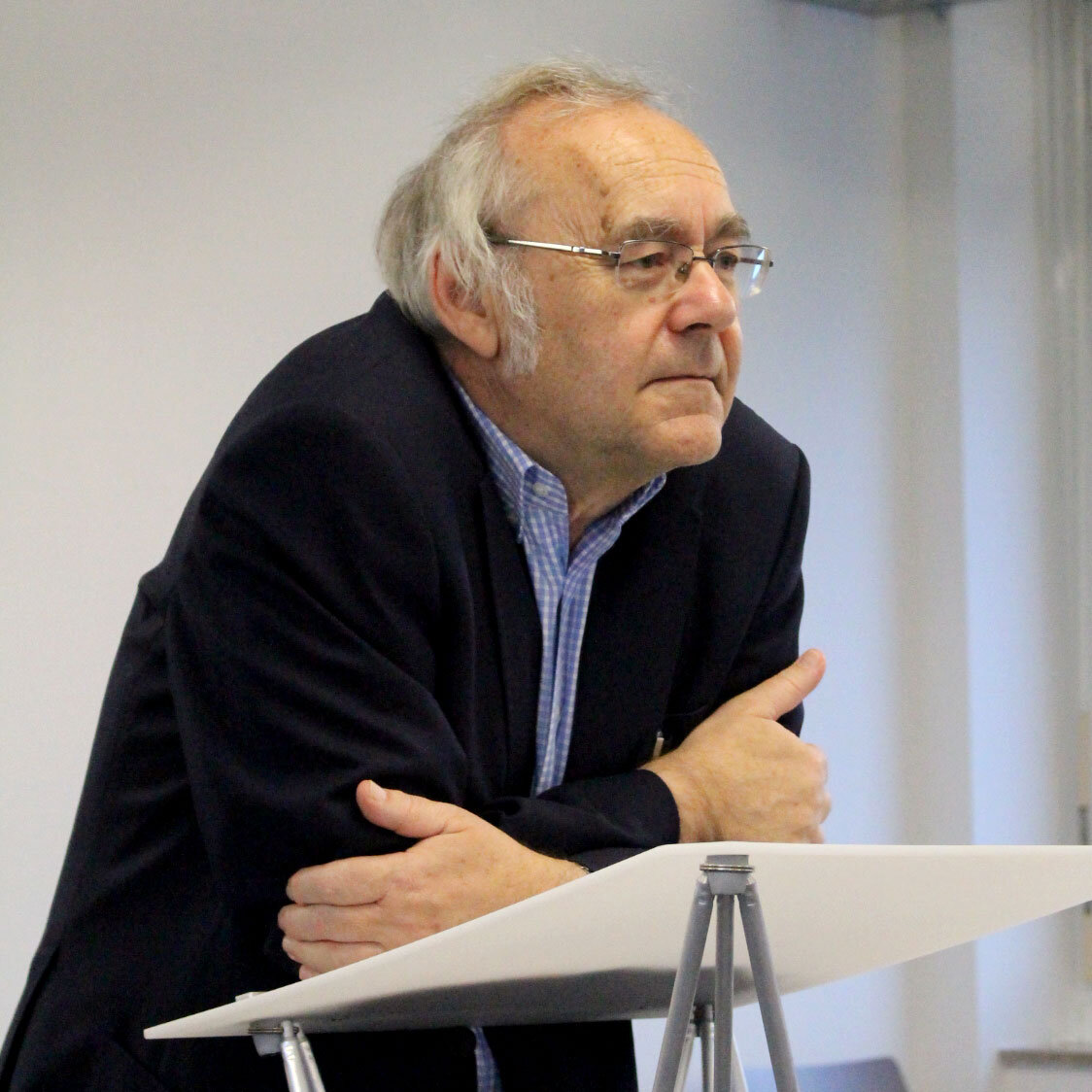The Flight From Contingency 10


120. Human discourse often but not always runs free of conflict. Opinions complement each other or are exchanged, and the communication in such non-controversial discourses resembles a “monologue with distributed roles”.
With regard to the possible truth or falsehood of opinions held in conflict-free discourses, all that can be said is “Where there is no plaintiff there is no judge.” The instruments of the dualist argumentation-technique come into play only when a consensus turns into a dissent. As long as discourse runs only in one direction and do no become “discursive”, the problem of truth and error does not arise.
121. Once a discourse turns controversial we are confronted with conflicting opinions, views, descriptions and assertions. The participants of such a discourse blame each other for committing errors, making false assertions, holding wrong opinions while they make a more or less strong truth-claim for their own opinion which they want redeemed by the other discourse-participants.
122. Now, what are the intended effects of a successful pursuit of truth on a controversial discourse? In the case of success the plurality of opinions in the discourse is reduced towards the one and true opinion. And the dualist philosophy of truth is supposed to be the guarantor that the ultimately surviving opinion in this selection process is not simply the truth of the stronger one, (die Wahrheit des Stärkeren), but rather the true or more likely true and if, then only therefore stronger opinion.
123. The instance in the beyond of discourse has the advantage as a general instance that everybody can bring him/herself into agreement with it. Any arbitrary opinion can be claimed to be in concordance with reality, with the world, with nature, with science or to be sufficiently justified etc.
124. In all controversial discourses we are going to favour our own opinions. We hold them to be more likely true than opinions that deviate from our own opinions.
We assume that our own opinions are more likely in accordance with reality or with science, more likely sufficiently justified than all known counter-opinions. Why? Well, because as soon as we know of another opinion to be more likely true than our own one, we are going to adopt this opinion instead of our – no longer - “own” opinion, unless we play advocatus diabolior lie and talk differently than we think.
This does not preclude our knowledge from being uncertain, that we can be wrong: but we cannot claim that it is more uncertain or more likely wrong than familiar knowledge, than knowledge we know of and thus have at our disposal.
If now all participants in a discourse consider their own opinions to be the (more likely) true ones, then the truth-claim for an opinion contributes nothing to its assertion. In addition a pre-selection among all possible opinions has already always been made. That we hold these opinions and not those is an (intermediate) result of our previous cognitive activities. In a discussion every proponent defends/holds the thesis to which he grants the best chance of being true.
(The mutual truth-claims motivate the unification process towards the truth, but at the same time they impede it, because each discourse-participant sees his own opinion as closest to the truth.)
125. Another obstacle on the way to a realization of the dualist idea of truth is the problem that we cannot distinguish between truth and error with respect to the opinions we hold.
If we admit that we can err – and who would not – we need to admit at the same time that we cannot detect an error, when and as long as we commit it. We are in the strange situation that we feel readily able to name the truths we know, but are unable to name the errors we are committing and the mistakes we are making.
We can only name the errors we have committed, that is, we no longer commit. We cannot give an example of an error as long as we make it. The acknowledgment of an error is always directed towards the past and does not concern the present.
In contrast we have no difficulty in establishing the error of the other, of an opponent in a discourse. But we can make this assessment only, if we at least “for the time being” put our own opinion out of question and presuppose it as true. Thus, however, the error of the opposing opinion lies merely in the deviation from the opinion from which the claim of error is raised.
This tendency corresponds with the error always preceding the truth - it is always the last, the most recent opinion, that I hold to be true and need to hold to be true at least until I give it up in favor of a new opinion, which then takes over the role of the true opinion.
The further we go back in history or in our personal biography, the more numerous the errors become – but these are only errors we have separated from, which we have recognized.
And the more closer we get to the present the more the truths predominate - but this approach to the truth is no more than the approach to the opinions we hold here and now. The acknowledgment of an error only happens, once the “new truth” has been found.
126. (How do we distinguish between perception and illusion?
With regard to the perceptions we make, we cannot distinguish between true-perception and false-perception (zwischen Wahrnehmung und Falschnehmung). Only when the perception so faris superseded by a new perception we can determine from this new perception the earlier perception as an illusion. As long as we see water in the desert, we cannot distinguish between water and a mirage. Only when we no longer see water in the desert we can determine the previous seeing of water as a mirage: from this new perception with regard to which we again cannot distinguish between true-perception and false-perception.)
127. Truth-claims and error accusations are only made explicit, when conflicts arise in the discourse, that means also: when the consensus that lasted until then, breaks. Discourses do not begin with a conflict: they begin with a consensus. If we discuss for example, whether the table here is made of wood or of plastic, then we can continue this discussion only as long as there is a consensus that there is a table here.
Obviously we can always question or suspend this initial consensus, this basic consensus: but then we would discuss perhaps whether there is a chair here or a table and we would have a new basic consensus from which to start – tacit or explicit – for example that there is a piece of furniture here.
128. When the consensus breaks, when our conversation turns discursive, phrases and expressions are used in truth-oriented discourse that are well-known to all of us. Expressions like the following: “in reality”, “in fact”, “in truth”, “evidently”, “actually”, “as a matter of fact”, “from a scientific standpoint”, “as we know today”, “as science has shown”, and so on.
Such expressions are always followed by the own opinion. They introduce the speaker’s own opinion and make the truth-claim on it explicit. The use of such phrases as “in reality” and “in truth” indicates a tendency for transcending one’s own thinking. This tendency becomes manifest in the depersonalization, in the objectivation of exactly that opinion for which the truth-claim is necessarily made in case of conflict, namely one’s own opinion. When we read “In reality things are so and so...” then, behind it, there is also the author’s wish that we should not take his opinion personally, that we should abstract from him as the author. We should get the impression that the author’s opinion is valid even if he himself does not hold it and even if nobody holds it. One’s own opinion gets depersonalized, it is the one for which truth is claimed. And to the extent the truth claim is rightly raised, one’s own opinion is also rightly depersonalized: if it is in reality so as I say it is, then there is alsono reason not to say that it is so in reality.
In contrast the dissenting opinion, the counter-opinion, against which the objection of error and falsehood is raised, gets personalized. The discussion partner and opponent “falsely believes that”, “apparently holds to be true”, “makes the false assertion”, “is of the erroneous opinion”, “is mistaken in believing that”,etc.
129. What is happening here? Well – truth is depersonalized and falsehood is personalized. But since truth has not yet been established perhaps we should put it more carefully: The opinion held to be true, - one’s own opinion – is depersonalized and the opinion held to be false – the opposite opinion – is personalized.
Truth is impersonal, is subject-independent; falsehood and error are personal, are subject-dependent. Falsehood and error are only in our head, but truth is in it and out of it. To err is human, but truth is not alone the work of man.
130. Depersonalization provides those statements for which the truth claim is made with the “outer from”, the rhetoric shape, that corresponds to the mentioned characteristics of truth. Depersonalization and personalization, however, contribute nothing to the truth or falsehood of opinions, sentences, statements and theories. In general, it can be said that truth-oriented discourse does not want to contribute anything to truth: all it can aim for is to establish/determine the truth of opinions. The decision about truth and falsehood is not made within discourse, but in a beyond of discourse, where, strictly speaking, it has always already been made. The decision is merely announced this side, within the discourse.
131. On the other hand truth-oriented discourse can hardly do without the argumentation figures of depersonalization and personalization. After all, I can criticize the opposite opinion only insofar as I put my own opinion out of question (and in a certain sense also outside the discourse), that is: do not discuss it, at least for the duration of this criticism.
And this putting out of question of one’s own view happens outwardly via its depersonalization. The falsehood of the deviating opinion can only be determined from an opinion that is at least insofar and inso long presupposed as true – and for this it makes no difference whether one’s own opinion is “really” or merely “supposedly” true.
132. But now the goal of truth-oriented discourse is to establish only really true sentences as true, not merely supposedly true sentences. And the goal is not a kind of knowledge whose authority is derived from expressions and argumentation figures that can be applied to any arbitrary opinion. It is at least expressis verbisa kind of epistemic authority that only reality itself or another truth-instance (like the standpoint of the leading scientists) can provide.
Next: The Flight From Contingency 11

Josef Mitterer is an Austrian philosopher.
The Flight From Contingency 1 here
The Flight From Contingency 2 here
The Flight From Contingency 3 here
The Flight From Contingency 4 here
The Flight From Contingency 5 here